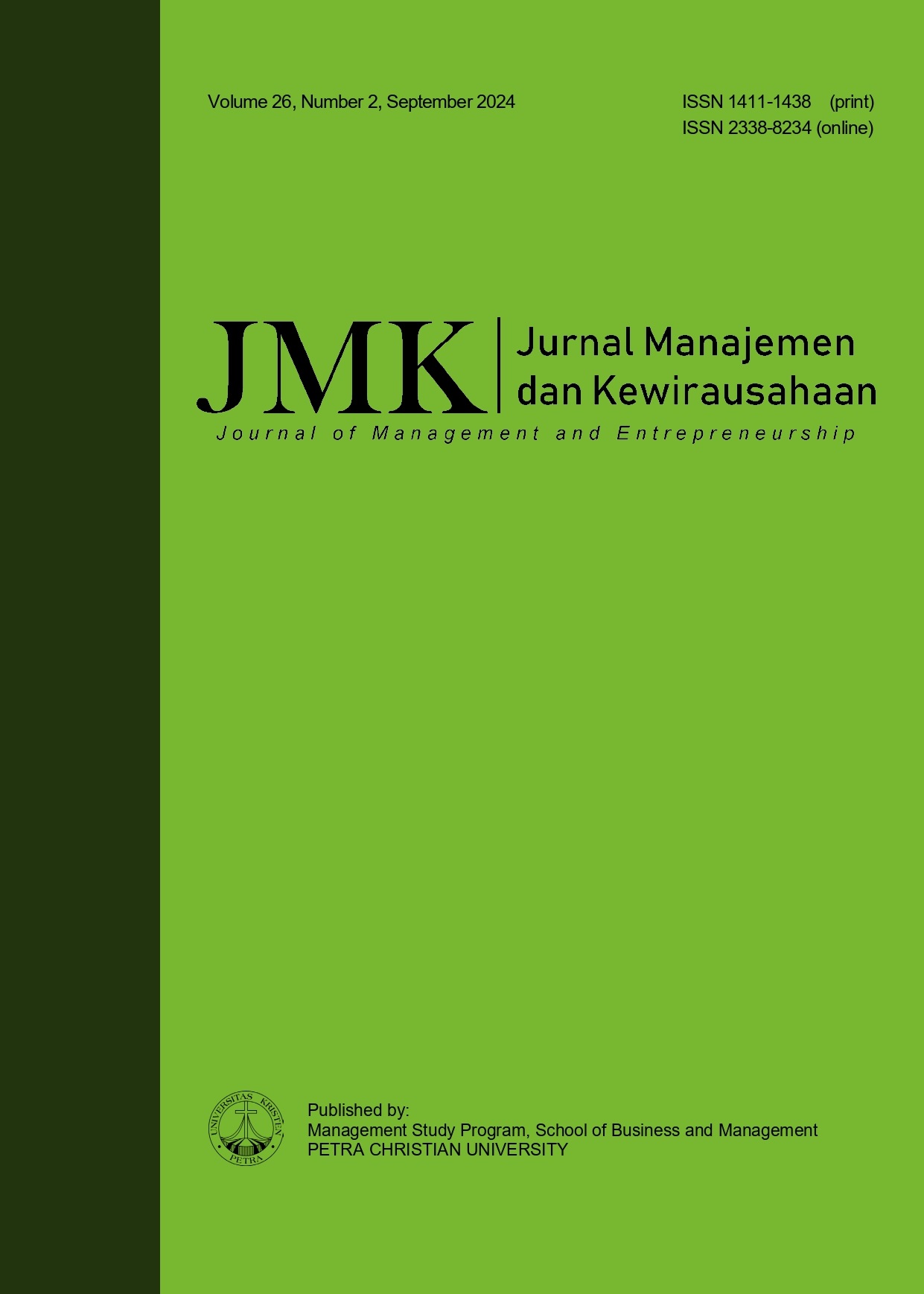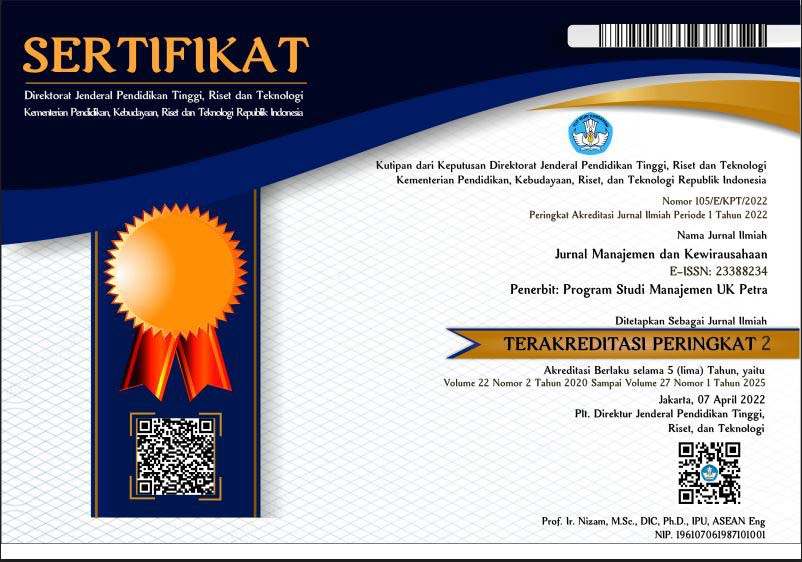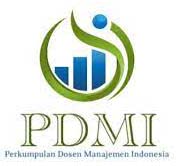WINNING MECHANISMS OF SURVIVAL: A CASE OF “BUL-ANON” RETAILERS IN RURAL PHILIPPINES
DOI:
https://doi.org/10.9744/jmk.26.2.116-124Keywords:
Business challenges, coping mechanism, marketing, finance, operations, human resource managementAbstract
This study focused on the challenges faced by a group of independent and small retailers called Bul-anon retailers and identified coping mechanisms adopted. The study was conducted to investigate the coping mechanisms that can be utilized by other members of the retail industry to continue to thrive despite difficulties. Findings indicated that the challenges faced by the Bul-anon retailers revolved around three of the four primary business functions: marketing, finance/accounting, and operations. To avoid the significant impact of the above challenges, retailers adopted coping mechanisms to stay in business amidst large department stores and other businesses. How they handled their customers, being customer-oriented, was the winning mechanism for the survival of these retailers.
References
Agdigos, M. A. H., Etpison, M. C. R., Patino, A. A. C., & Etrata, Jr., A. E. (2022). The impact of brand image and perceived value on consumers’ purchasing behavior of clothing lines. Manage-ment Review: An International Journal, 17(2), 27–45. https://doi.org/10.55819/mrij.2022.17.2.27
American Marketing Association. (2017). Definitions of marketing. Retrieved from https://www.ama.org
Ballesteros, M. M., & Domingo, S. N. (2015). Building Philippine SMEs resilience to natural disasters. PIDS Discussion Paper Series, No. 2015-20, Philippine Institute for Development Studies (PIDS), Makati City.
Benavides, G. G. (2022). Customer satisfaction and customer loyalty: A causal model. Liceo Journal of Higher Education Research, 18 (2), 19–36. http://dx.doi.org/10.7828/ljher.v18i02.1616
Bhuiyan, M. R. I. (2023). The challenges and opportunities of post-COVID situation for small and medium enterprises (SMEs) in Bangladesh. PMIS Review, 2(1), 140–159.
Byun, S. E., Han, S., Kim, H., & Centrallo, C. (2020). US small retail businesses’ perception of competition: Looking through a lens of fear, confidence, or cooperation. Journal of Retailing and Consumer Services, 52, 101925. https://doi.org/10.1016/j.jretconser. 2019.101925
Byun, K. J., Park, J., Yoo, S., & Cho, M. (2023). Has the COVID-19 pandemic changed the influence of word-of-mouth on purchasing decisions? Journal of Retailing and Consumer Services, 74, 103411. https://doi.org/10.1016/j.jretconser.2023.103411
Cammayo, E. U., & Cammayo, K. B. U. (2020). Factors affecting the performance within the micro, small medium enterprise sector in Isabela, Philippines. Journal of Critical Reviews, 7(11), 3377–3386.
Christina, B., Neelufer, A., & Al-Amri, S. (2014). Challenges and barriers encountered by the SMEs owners in Muscat. International Journal of Small Business and Entrepreneurship Research, 2(3), 1–13.
De Jesus, F. S., & Fajardo-ibarra, L. M. (2023). Factors affecting customer loyalty in Nueva Ecija, Philippines. Multidisciplinary International Journal of Research and Development, 2(3), 30–40.
Dekimpe, M. G., & van Heerde, H. J. (2023). Retailing in times of soaring inflation: What we know, what we don’t know, and a research agenda. Journal of Retailing, 99(3), 322–336. https://doi.org/10.1016/j.jretai.2023.07 .002
Fang, S. (E.), Prayag, G., Ozanne, L. K., & de Vries, H. (2020). Psychological capital, coping mechanisms and organizational resilience: Insights from the 2016 Kaikoura earthquake, New Zealand. Tourism Management Perspectives, 34, 100637. https://doi.org/10.1016/j.tmp.2020.100637
Fombelle, P. W., Voorhees, C. M., Jenkins, M. R., Sidaoui, K., Benoit, S., Gruber, T., Gustafsson, A., & Abosag, I. (2020). Customer deviance: A framework, prevention strategies, and oppor-tunities for future research. Journal of Business Research, 116, 387–400. https://doi.org/10.1016/j.jbusres.2019.09.012
Har, L. L., Rashid, U. K., Chuan, L. T., Sen, S. C., & Xia, L. Y. (2022). Revolution of retail industry: From perspective of retail 1.0 to 4.0. Procedia Computer Science, 200, 1615–1625. https://doi.org/10.1016/j.procs.2022. 01.362
Indian economy likely grew at weakest pace in a year in Jan-March, says Reuters poll. (2024, May 27). The Economic Times. Retrieved from http://www.economictimes.indiatimes .com
Lontchi, C. B., Yang, B., & Shuaib, K. M. (2023). Effect of financial technology on SMEs performance in Cameroon amid COVID-19 recovery: The mediating effect of financial li-teracy. Sustainability, 15(3), 2171. https://doi.org/10.3390/su15032171
Manansala, L. D., & Valerio, A. T. (2019). Impact of violent and property crimes on microfirms’ performance: The Philippine experience. HCMCOUJS- Economics and Business Administration, 14(1), 3–16. http://dx.doi.org/10.46223/HCMCOUJS.econ.en.14.2.2765.2024
Mungal, A., & Garbharran, H. L. (2014). The per-ceptions of small businesses in the implementation of cash management techniques. Journal of Economics and Behavioral Stu¬dies, 6(1), 75–83. https://doi.org/10.22610/jebs.v6i1.471
Pandey, S., Khare, A., & Bhardwaj, P. (2016). An-tecedents to local store loyalty: Influence of culture, cosmopolitanism and price. International Journal of Retail and Distribution Management, 43(1), 5–25. https://doi.org/10.1108/IJRDM-08-2013-0156
Russell, R. S., & Taylor, B. W. (2003). Operations management. Upper Saddle River, NJ: Prentice Hall.
Downloads
Published
How to Cite
Issue
Section
License
Copyright (c) 2024 Charlotte Bisnar, Lisa Neoy, Mary Crist Villamor, Candy Elizabeth Gil-Salapi

This work is licensed under a Creative Commons Attribution 4.0 International License.
Authors who publish on this journal agree to the following terms:
- Authors retain copyright and grant the journal right of first publication with the work simultaneously licensed under a Creative Commons Attribution License that allows others to share the work with an acknowledgement of the work's authorship and initial publication in this journal.
- Authors are able to enter into separate, additional contractual arrangements for the non-exclusive distribution of the journal's published version of the work (e.g., post it to an institutional repository or publish it in a book), with an acknowledgement of its initial publication in this journal.
- Authors are permitted and encouraged to post their work online (e.g., in institutional repositories or on their website) prior to and during the submission process, as it can lead to productive exchanges, as well as earlier and greater citation of published work (See The Effect of Open Access).


















